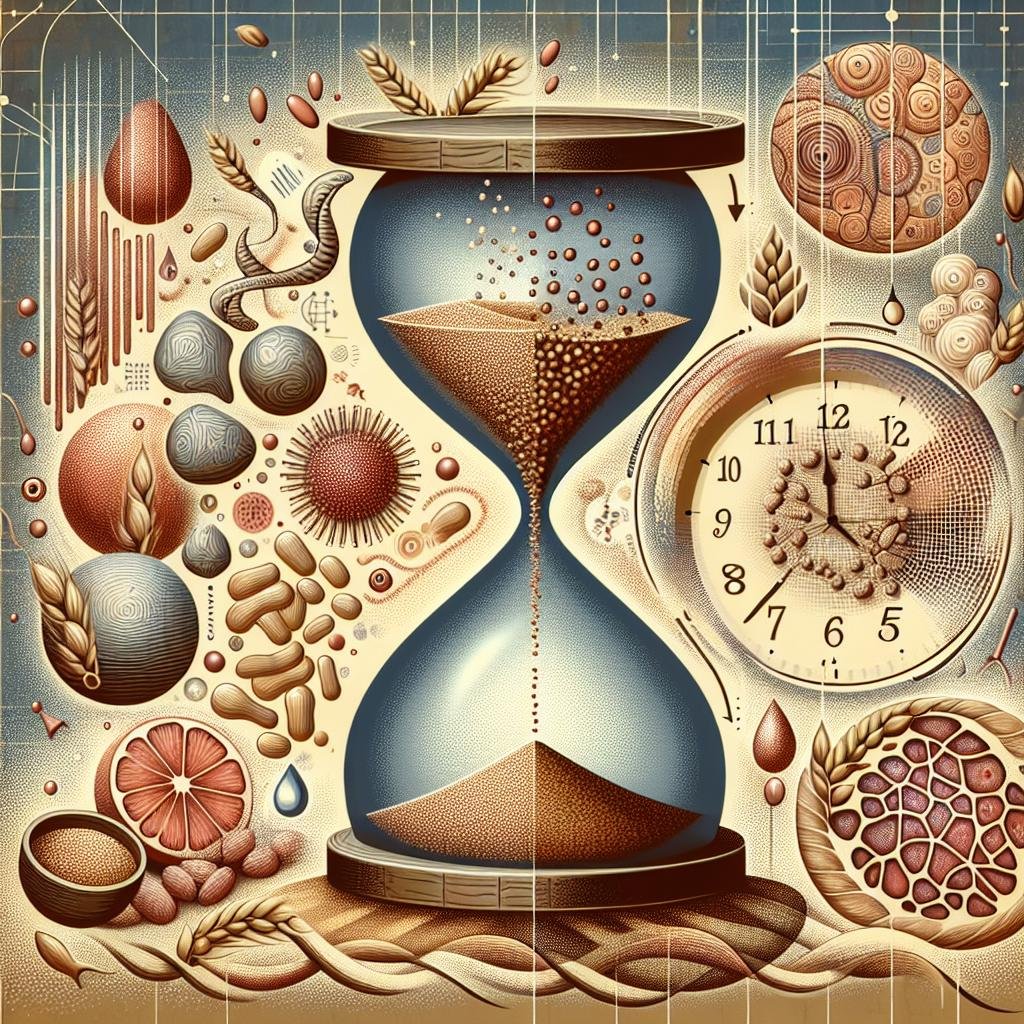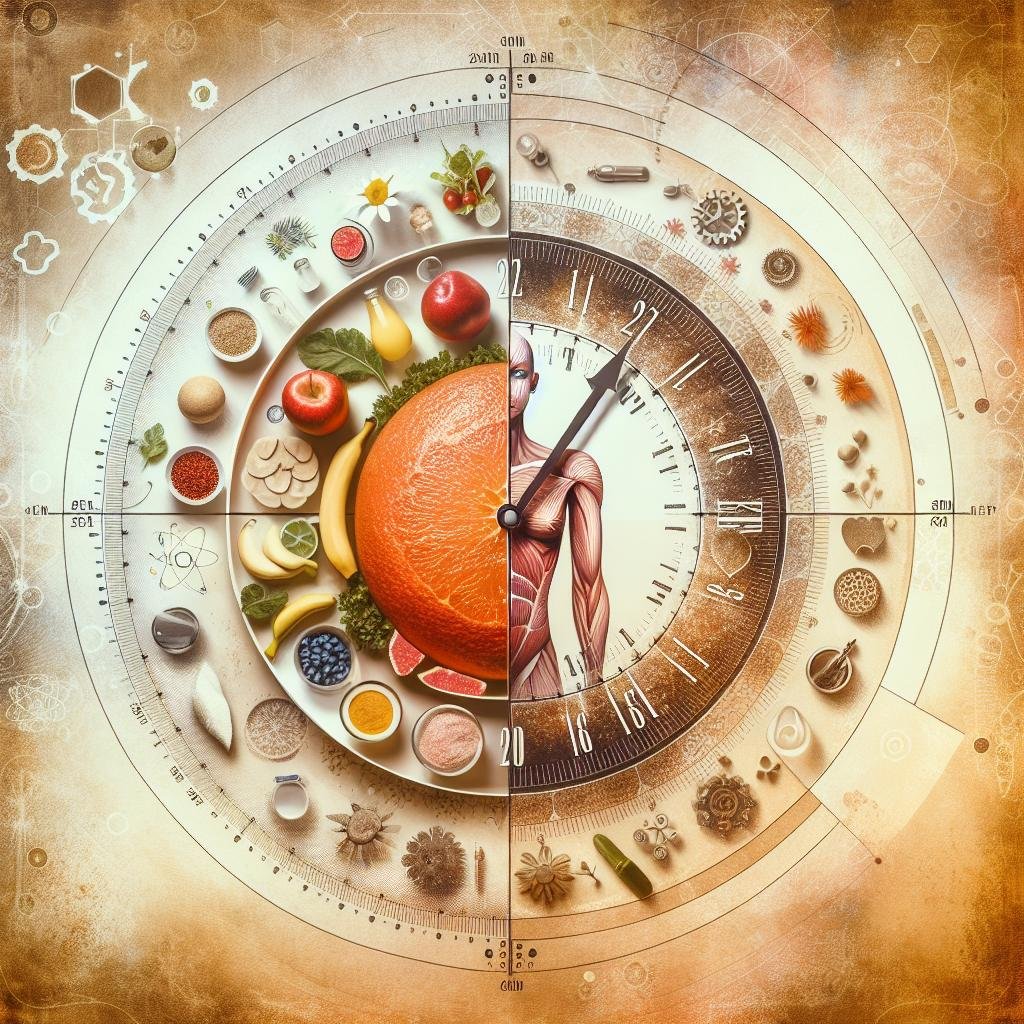In the quest for clear, radiant skin, many individuals explore an array of diets, skincare routines, and lifestyle changes, often overlooking a key factor: the timing of food intake. Enter intermittent fasting—a trend that has gained momentum not only for its potential impacts on weight loss and metabolic health but also for its intriguing implications for skin conditions and acne. As the body embarks on periods of fasting, complex biological processes are initiated, prompting a cascade of reactions that may influence skin health in ways we are only beginning too understand. In this article, we will delve into the intersection of intermittent fasting and dermatological health, examining how this eating pattern might serve as a powerful ally in the battle against acne and other skin concerns. Join us as we uncover the science behind this lifestyle choice and its potential to transform more than just waistlines, but also the complexion of countless individuals seeking clarity beneath the surface.
Exploring the Link Between Intermittent Fasting and Skin Health
Intermittent fasting has gained traction not only for its potential benefits in weight management but also for its intriguing effects on skin health. Several studies suggest that this eating pattern might help reduce inflammation, which is a significant contributor to various skin conditions, including acne and eczema. By giving the digestive system a break, intermittent fasting allows the body to redirect energy towards cellular repair and rejuvenation. This can result in clearer skin over time. The body’s natural healing processes may improve, leading to enhanced skin elasticity and a more youthful appearance.
Moreover, fasting is believed to trigger autophagy, a cellular cleansing mechanism that can help eliminate damaged cells and promote the generation of new, healthy skin cells. By incorporating intermittent fasting, individuals might experience the following benefits:
- Reduction in Acne: Potential decreases in oil production and inflammation.
- Improved skin Tone: A more radiant complexion due to the promotion of skin cell turnover.
- Balanced Hormones: Hormonal regulation can significantly impact skin health,particularly in those susceptible to hormonal acne.
| Benefits of Intermittent Fasting for Skin | Description |
|---|---|
| Anti-inflammatory Effects | Helps reduce skin redness and irritation. |
| Enhanced Hydration | Improves skin moisture levels,leading to a healthier appearance. |

Unveiling the Science: How Fasting Influences Acne Development
Fasting has emerged as a powerful tool not only for weight management but also for skin health, particularly in the realm of acne development. Intermittent fasting (IF) promotes a unique metabolic state that can influence the hormonal balance in the body, especially insulin levels. When insulin spikes—whether due to processed sugars or frequent meals—it can trigger the production of sebum,the oily substance that contributes to clogged pores and acne formation. By practicing intermittent fasting, individuals may experience lower insulin levels, leading to reduced sebum production and, consequently, fewer breakouts.
Moreover, fasting also initiates a process called autophagy, in which the body cleans out damaged cells and regenerates healthier ones. This natural detoxification process can enhance skin cell turnover, helping to remove dead skin cells that can otherwise contribute to acne lesions. When combined with a diet rich in anti-inflammatory foods during eating periods, the benefits can be synergistic. Consider incorporating these dietary tips during your eating windows:
- Load up on antioxidants: Include berries, leafy greens, and nuts.
- Incorporate omega-3 fatty acids: Focus on fatty fish and flaxseeds.
- Avoid processed foods: Limit sugar and refined carbs to keep insulin levels stable.
| Aspect | Impact of Fasting |
|---|---|
| Insulin Levels | Lower insulin reduces sebum production. |
| Autophagy | Removes damaged cells; promotes skin renewal. |
| Diet Integration | Enhances fasting benefits with anti-inflammatory foods. |

Nutritional Strategies to Optimize Skin Benefits During Fasting
To enhance the benefits of fasting on your skin, it’s crucial to focus on nutritional strategies that support skin health. frist, prioritize hydration. Water is essential for maintaining skin elasticity and preventing dryness. Consider incorporating herbal teas and infused water with fruits like lemon or cucumber for additional antioxidants. Another key strategy is to consume foods rich in healthy fats during your eating window. Include items such as:
- Avocados – packed with vitamins E and C, which are vital for skin repair and protection.
- Fatty Fish – like salmon and mackerel, rich in omega-3 fatty acids that help reduce inflammation.
- nuts and Seeds - providing essential fatty acids and antioxidants for skin radiance.
moreover, focus on antioxidant-rich foods to combat oxidative stress that may arise during fasting. Incorporate a variety of colorful fruits and vegetables to your meals. Here’s a quick guide to some beneficial options:
| Food | Benefits for Skin |
|---|---|
| Berries | Rich in vitamins and antioxidants that brighten the skin. |
| Green Leafy Vegetables | provide vitamins A, C, and K, promoting skin healing and hydration. |
| Sweet Potatoes | High in beta-carotene, it helps protect the skin against UV damage. |

Practical tips for Incorporating Intermittent Fasting for Clearer Skin
Incorporating intermittent fasting into your routine can be an effective way to achieve clearer skin,as it allows your body to focus on healing and rejuvenation. To start, consider the following practical tips:
- Choose Your Fasting Window: Popular methods include the 16/8 approach, where you fast for 16 hours and eat during an 8-hour window. Adjust the timing to fit your schedule for optimal adherence.
- Stay Hydrated: During the fasting period, drink plenty of water, herbal teas, or black coffee to help flush out toxins.Hydration plays a crucial role in maintaining skin elasticity and clarity.
- Focus on Nutrient-Dense Foods: When it’s time to eat, fill your plate with whole foods such as fruits, vegetables, lean proteins, and healthy fats to nourish your skin from the inside out.
- Listen to Your Body: Pay attention to how your skin reacts during your fasting journey. Everyone’s body is unique, so it’s significant to adjust your approach based on what works best for you.
Another way to enhance the benefits of intermittent fasting is by integrating skin-friendly habits alongside your fasting plan:
| Skin-Friendly Habit | description |
|---|---|
| Consistent Skincare Routine | Follow a daily routine that includes cleansing, moisturizing, and sun protection to complement fasting benefits. |
| Limit sugar Intake | Avoid high-sugar foods that can trigger inflammation and breakouts, aligning your dietary choices with your fasting. |
| Get Enough Sleep | Prioritize quality sleep,as it allows your skin to repair and regenerate while you fast. |
| Manage Stress | Engage in relaxation techniques like yoga or meditation, as stress can negatively impact your skin health. |
To Wrap It Up
As we draw the curtain on this exploration of the interplay between intermittent fasting and skin health, it becomes evident that the journey toward clearer skin is as nuanced as the human experience itself. While scientific inquiry is still unfolding, the emerging evidence suggests that intermittent fasting may offer a beacon of hope for those struggling with acne and various skin conditions.
The ancient practice of rhythmically cycling between nourishment and abstention serves not only to rejuvenate the body but perhaps even the skin, inviting a symphony of restorative processes that align with our body’s innate healing capacities. Yet, as with any health regimen, individual responses vary, and what works for one may not work for another.
As we continue to peel back the layers of skin health,it is indeed crucial to approach intermittent fasting—and indeed,all dietary practices—with an open mind and a discerning eye. Consultation with healthcare professionals remains invaluable, ensuring that every step taken towards healthier skin is informed and safe.
In the grand tapestry of wellbeing,intermittent fasting offers but one thread,weaving together the science of nutrition and the art of self-care. May your journey toward radiant skin be as enriching as it is indeed enlightening, defined not only by what you eat or don’t eat but by the holistic approach you adopt to embracing your unique beauty.

